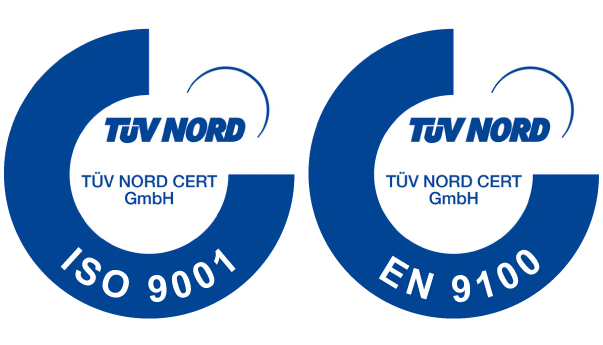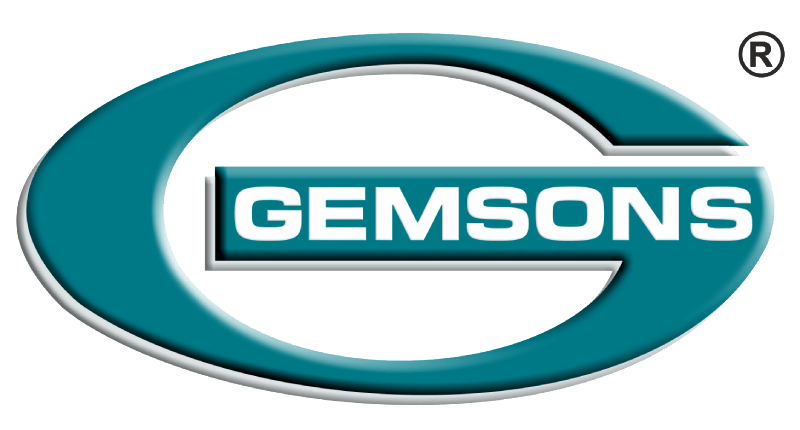Table Of Content
What are CNC Machining Services?
Gemsons Precision Engineering Pvt. Ltd.: A Trusted Name in CNC Machining Services
Factors Affecting CNC Programming Costs
Understanding CNC Machining Service Rates
How to Calculate CNC Programming Costs and Machining Service Rates
Tips for Optimizing CNC Machining Costs
In the world of precision engineering, where intricate components and parts are crafted with utmost accuracy, CNC machining services play a pivotal role. Companies like Gemsons Precision Engineering Pvt. Ltd. have been at the forefront of this industry, offering high-quality CNC machining services that cater to a wide range of industries. However, as businesses look to optimize their production processes and budgets, understanding CNC programming costs and machining service rates becomes crucial.
In this comprehensive guide, we will delve into the world of CNC machining services, shedding light on the intricacies of CNC programming costs and service rates. Whether you are a seasoned professional or new to the world of CNC machining, this article will provide you with valuable insights to make informed decisions.
What are CNC Machining Services?
Before we dive into the nitty-gritty of CNC programming costs and machining service rates, let’s start with the basics. CNC stands for Computer Numerical Control, and CNC machining services involve the use of computer-controlled machines to manufacture precise and intricate components from various materials, including metal, plastic, and wood. These machines are programmed to follow precise instructions, resulting in highly accurate and repeatable production processes.
CNC machining services offer a wide range of advantages, such as:
- Precision: CNC machines can produce parts with incredibly tight tolerances, ensuring high-quality and accurate components.
- Versatility: They can work with a variety of materials, making them suitable for diverse industries.
- Efficiency: CNC machines can run 24/7, minimizing production downtime.
- Complexity: These machines can create intricate and complex shapes that would be challenging to achieve manually.
Gemsons Precision Engineering Pvt. Ltd.: A Trusted Name in CNC Machining Services
Before we delve into the specifics of CNC programming costs and machining service rates, it’s worth mentioning Gemsons Precision Engineering Pvt. Ltd. as a leading player in the field. With a stellar reputation for delivering top-notch CNC machining services, Gemsons has consistently met the demands of industries like aerospace, automotive, medical, and more.
Now, let’s embark on a journey to understand the factors that influence CNC programming costs and machining service rates.
Factors Affecting CNC Programming Costs
Complexity of Design: The intricacy of the part’s design directly impacts the programming complexity. Complex geometries require more intricate programming, leading to higher costs.
- Material Selection: Different materials have distinct machining requirements. Exotic materials may demand specialized tooling and expertise, adding to the overall cost.
- Batch Size: The quantity of parts to be manufactured can significantly affect CNC programming costs. Smaller batches might have a higher per-part programming cost, while larger quantities can benefit from economies of scale.
- Tolerances and Quality Standards: Tighter tolerances and higher quality standards demand more meticulous programming and machining, which can increase costs.
- Machine Setup and Tooling: Setting up the CNC machine and selecting appropriate tooling are essential steps that influence costs. Specialized tooling and lengthy setup procedures can add to expenses.
- Production Time: The time required to complete the machining process is a significant cost factor. Longer machining times translate to higher costs.
- Software and Programming Tools: The choice of CNC software and programming tools can affect costs. High-end software with advanced features may have licensing fees that contribute to expenses.
Understanding CNC Machining Service Rates
Now that we’ve explored the factors affecting CNC programming costs, let’s delve into the intricacies of CNC machining service rates. These rates encompass various elements and considerations that influence the overall cost of CNC machining services.
- Machine Hourly Rate: CNC machining services often charge based on machine time. This hourly rate covers the cost of machine operation, maintenance, and depreciation. Different machines may have varying hourly rates.
- Labor Costs: Skilled CNC operators are essential for efficient machining. Labor costs include operator wages, benefits, and training expenses.
- Tooling and Material Costs: CNC machining services incorporate the cost of tooling, including the purchase, maintenance, and replacement of cutting tools. Material costs involve the expense of raw materials used in the machining process.
- Overhead Expenses: Overheads such as facility maintenance, utilities, and administrative costs are factored into the machining service rates.
- Profit Margin: CNC machining service providers aim to make a profit, so a margin is added to cover business expenses and generate revenue.
How to Calculate CNC Programming Costs and Machining Service Rates
Now that we’ve dissected the key elements affecting CNC programming costs and machining service rates, it’s essential to understand how to calculate these costs accurately. Here’s a step-by-step guide:
Step 1: Determine Programming Costs
- Begin by assessing the complexity of the part’s design.
- Evaluate material requirements and batch size.
- Consider tolerances and quality standards.
- Calculate the time required for software programming.
Step 2: Calculate Machine Hourly Rate
- Contact your CNC machining service provider or research the hourly rates for the specific CNC machine being used.
- Take into account any additional fees for setup or special tooling.
Step 3: Estimate Labor Costs
- Calculate the labor costs based on the hourly rate for CNC operators and the expected machining time.
Step 4: Add Tooling and Material Costs
Include the cost of tooling and raw materials needed for the job.
Step 5: Account for Overhead Expenses
- Estimate overhead expenses associated with facility maintenance, utilities, and administrative costs.
Step 6: Determine Profit Margin
- Decide on the desired profit margin for your CNC machining project.
Step 7: Calculate the Total Cost
- Sum up the programming costs, machine hourly rate, labor costs, tooling and material costs, overhead expenses, and profit margin to obtain the total cost for your CNC machining project.
Tips for Optimizing CNC Machining Costs
Now that you have a firm grasp on how CNC programming costs and machining service rates are calculated, let’s explore some strategies to optimize your CNC machining costs while maintaining quality and precision.
- Design Optimization: Collaborate with engineers to optimize part designs for manufacturability. Simplify complex geometries when possible to reduce programming and machining time.
- Material Selection: Choose materials wisely. Opting for readily available and easier-to-machine materials can lower costs.
- Batch Production: Whenever feasible, plan for larger production batches. This can help spread setup costs over a greater number of parts, reducing per-part costs.
- Tolerance Review: Reevaluate tolerance requirements to ensure they are necessary. Relaxing tolerances slightly can simplify machining and decrease costs.
- Regular Maintenance: Maintain CNC machines and tooling to prevent premature wear and ensure consistent performance, reducing unexpected downtime and expenses.
- Supplier Relationships: Forge strong partnerships with CNC machining service providers. Long-term relationships can lead to cost reductions and priority scheduling.
- Stay Informed: Keep abreast of advancements in CNC machining technology and software. New tools and techniques may offer cost-saving opportunities.
Conclusion
CNC machining services are indispensable in today’s precision engineering landscape, serving a wide array of industries with accuracy and efficiency. Understanding the intricacies of CNC programming costs and machining service rates is essential for making informed decisions that align with your project’s requirements and budget.
By considering factors such as part complexity, material selection, batch size, and optimizing design, you can take steps to optimize CNC machining costs without compromising on quality. Companies like Gemsons Precision Engineering Pvt. Ltd. exemplify the dedication to excellence that drives the CNC machining industry forward.
So, whether you’re embarking on a new CNC machining project or looking to enhance your existing operations, armed with the knowledge from this comprehensive guide, you’re better equipped to navigate the world of CNC programming costs and machining service rates, making precision and efficiency your guiding principles.
Related Topics:
Why is CNC precision Machining in Demand?
What Is The Best Way To Choose CNC Machining For Parts Manufacturing?
What are the six main types of CNC machines?
Get The Complete Introduction Of CNC Machine and Its Parts
Exploring The World Of CNC Machining Services: Precision, Efficiency, And Innovation



Recent Comments